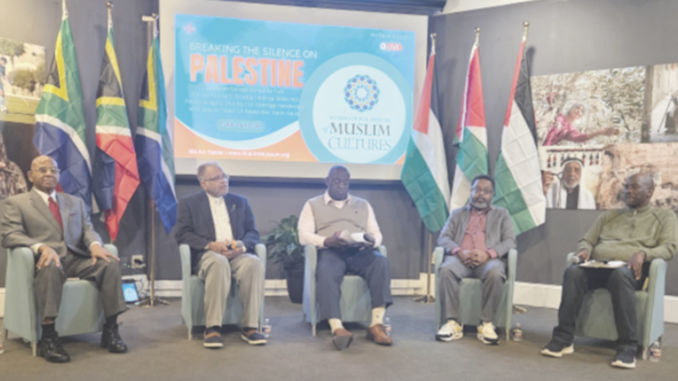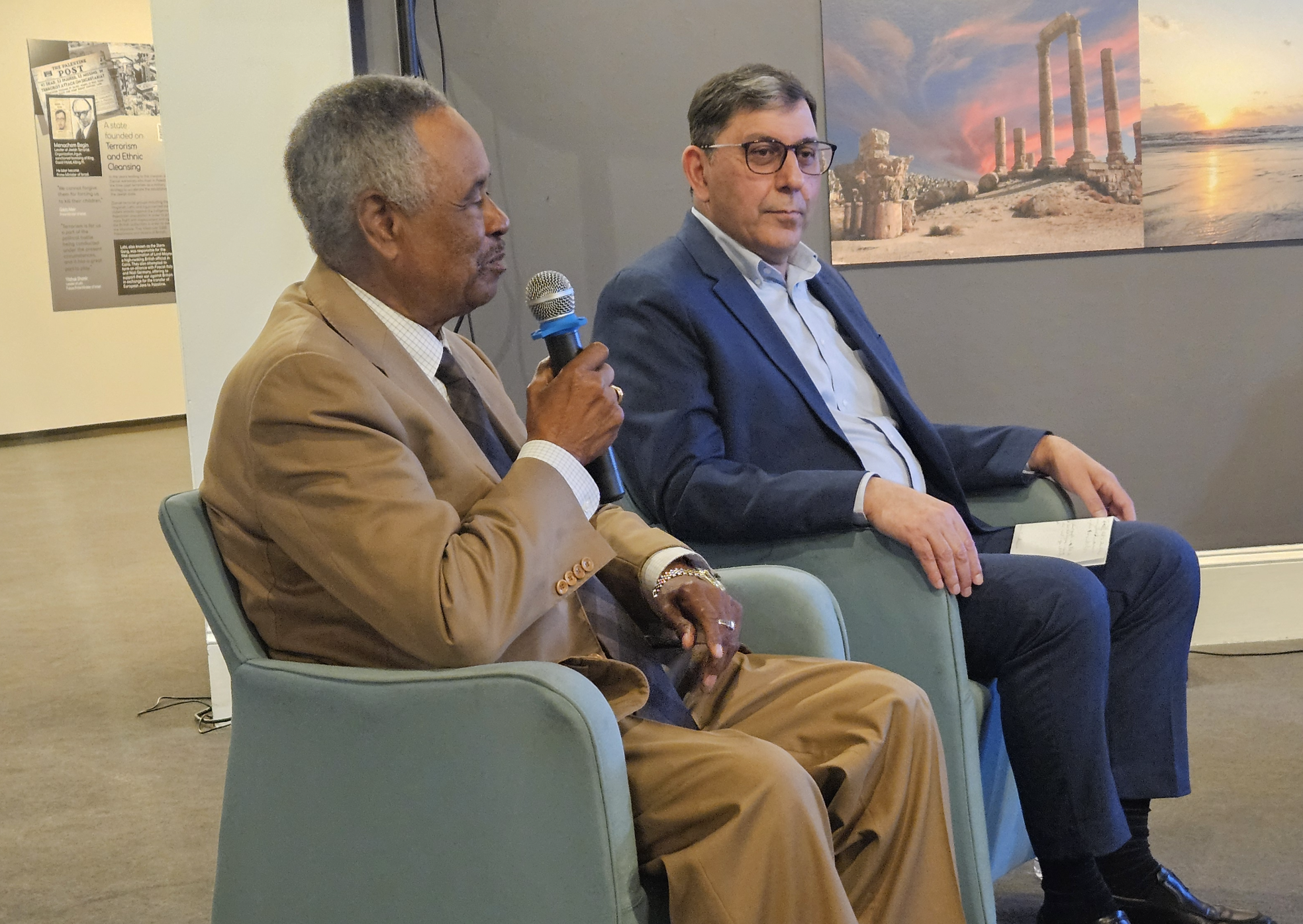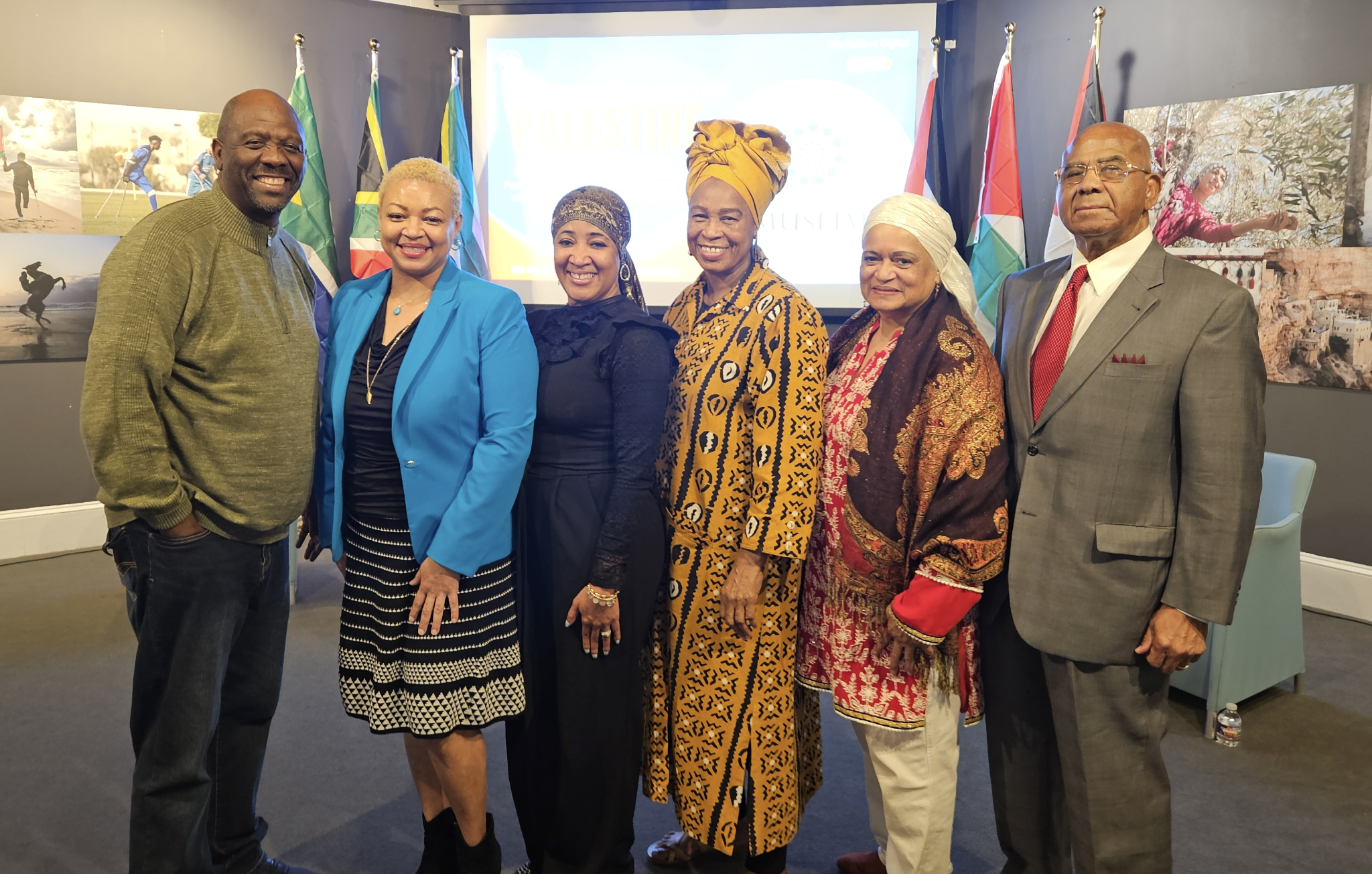
By Edelia J. Carthan, Ed.D.,
Editor,
The impactful event at the International Museum of Muslim Cultures on March 1, co-hosted by Socrates Garrett and Emad Al-Turk and sponsored by We Believe Digital and the Museum, was a significant platform for discussing “Breaking the Silence on Palestine.” The panel featured the notable voices of Bishop Ronnie C. Crudup, Bishop Glake Hill, Pastor Gregory Divinity, Dr. Eldridge Henderson, and LA-based Rev. Kelvin Sauls.
The panel discussion opened with an educational foundation on the historical context of the Israel-Palestine conflict.

Dr. Eldridge Henderson provided a concise yet comprehensive lesson, offering attendees essential background knowledge on how the issue originated. His presentation set the stage for the subsequent discussions, ensuring that all participants had a fundamental understanding of the complex and deep-rooted nature of the conflict.
Bishop Glake Hill, addressing the role of the Black church in societal change, expressed, “I get tired of us putting the ownership of changing the world on the Black church. We are only 13 percent of the population…I agree that we have to do more but it’s a challenge as a leader.” His statement underscores the disproportionate expectations placed on the Black church to drive societal transformation, despite being a minority in the population.
Pastor Gregory Divinity echoed Bishop Hill’s sentiments regarding the multifaceted challenges faced by the African-American community. He expressed, “We have so many issues as an African-American community that sometimes it gets to the point where we are pulled in so many directions, and want the African-American church to quote ‘do it all’. Yes, we have to be a voice, but we have to get more than the African-American church. We have to get people that believe in peace. We have to get people that believe in justice. We have to get people together. When we have a diversity of people together, then we can push for major change.” His words emphasized the need for broader coalition-building beyond the African-American church to effect significant societal transformations.

Bishop Crudup added a nuanced perspective on the role of African Americans in societal change. He stated, “I think the Lord has put African-American people in this unique place. Our struggles have given us perspective as well as a voice. I appreciate that and I think it’s an asset and a burden. The question is how do we use that asset without becoming overburdened?” His remarks highlighted the dual nature of the African-American experience as both a source of strength and a potential source of overwhelm, posing a critical question on balancing this unique position.
Dr. Eldridge Henderson provided a stark reminder of political challenges, saying, “You’re not going to find a democrat or republican who is going to oppose their leadership unless they don’t want to run for office again,” pointing out the often constricting nature of party politics on individual action and moral decision-making.
Rev. Kelvin Sauls offered an insightful and comprehensive commentary on the global and historical context of current issues. He drew parallels between the experiences of people in different regions, citing his recent visit to East Africa and the study of the trans-Indian slave trade and Tanzanian history. Sauls emphasized the interconnectedness of various struggles, from the plight of Palestinians to the challenges faced by African Americans and other communities worldwide. He highlighted the role of colonialism and settler colonization in shaping current global dynamics and stressed the importance of collective action and solidarity across different communities to effect change.
The event underscored the importance of diverse voices and communities coming together to address complex global issues. It highlighted the need for empathy, understanding and collective action in the pursuit of justice and equality. The panelists, through their diverse perspectives, emphasized the power of solidarity and the crucial role of dialogue in driving meaningful change.
In conclusion, the profound and insightful discussions at the “Breaking the Silence on Palestine” event mark just the beginning of a series of conversations aimed at deepening understanding and fostering collective action. Recognizing the critical importance of involving a wide array of voices and perspectives in these dialogues, the hosts, Garrett and Emad Al-Turk, are committed to hosting more of these panel discussions.
To broaden the impact and reach of these vital conversations, they are extending an invitation to churches, organizations and individuals who are passionate about justice, peace and community engagement. If your church or organization is interested in participating in future panel discussions on Palestine or if you wish to contribute to this crucial dialogue, you are encouraged to do so.
Your participation could be a significant step towards fostering greater understanding, solidarity and action in the pursuit of peace and justice.
For inquiries or to express your interest in being involved, contact Garrett at webelievedigitalplatform@gmail.com or Dr. Jay at drcarthan@yahoo.com.

Be the first to comment